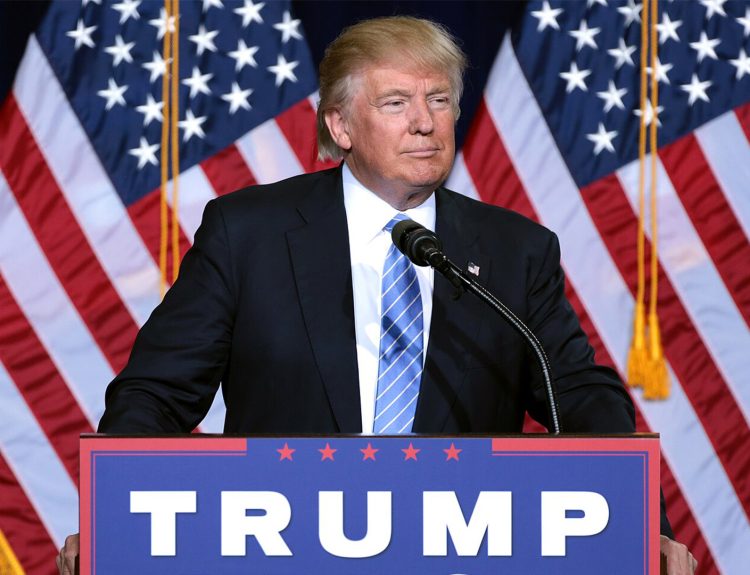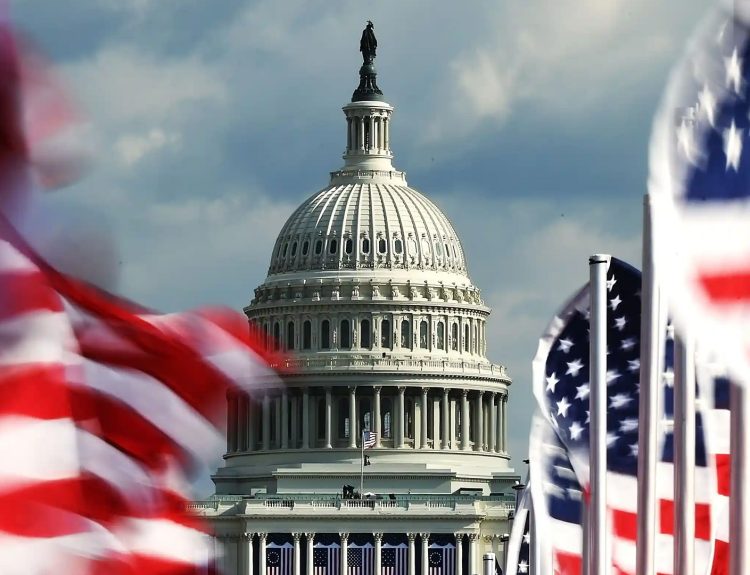In the latest development in the classified documents case against Donald Trump, Judge Aileen Cannon rejected the former president’s request to delay a pre-trial deadline for filing motions. Despite being nominated to the bench by Trump, Cannon dealt his legal team a blow by refusing to push back the February 22 deadline.
The ruling comes as Trump faces accusations of trying to delay the May trial start until after the 2024 election, likely to avoid the case if he wins. With Cannon frequently criticized for rulings seemingly favoring Trump, her refusal to extend the deadline signals she may not accommodate his team’s every request as the high-profile trial nears.
Judge Aileen Cannon Rejects Delay in Trump Classified Documents Case
Judge Aileen Cannon denied former President Donald Trump’s legal team’s request to delay pre-trial deadlines regarding Trump’s handling of classified documents. Cannon, who was appointed to the federal bench by Trump during his presidency, rejected the calls to extend the February 22, 2024 deadline for filing pre-trial motions.

Cannon has frequently been criticized for rulings that favored the former president, including those that could potentially delay the start of the trial, currently scheduled for May 20, 2024. Trump, the expected Republican presidential nominee in 2024, has argued that the federal trial regarding classified documents should be delayed until after the November election.
Discovery Remains Voluminous
In her order, Cannon noted that the volume of evidence, both classified and unclassified, that prosecutors had provided to Trump’s defense team was “exceedingly voluminous,” even more so than initially estimated.

Cannon wrote that “these evolving and unforeseen circumstances require a reevaluation” of the time provided to Trump’s counsel to review the evidence. While Cannon’s order keeps the existing pre-trial motion deadline in place.
Background on Trump’s Classified Documents Case
In November 2023, Judge Aileen Cannon ruled that former President Donald Trump would stand trial in May 2024 for charges related to the mishandling of classified documents. The classified records indictment has loomed over Trump’s candidacy, raising significant questions about how casually Trump treated national security information after leaving office.

Trump has pushed to delay the federal criminal trial and others until after the November 2024 presidential election, citing his and his lawyers’ busy schedules, the demands of his campaign, and the complexity of the cases. Judge Cannon has appeared sympathetic to these requests and delayed some deadlines, particularly those related to the use of classified materials.
Key Events and Rulings So Far in the Case
In November 2023, Judge Aileen Cannon decided that former President Donald Trump would stand trial in May 2024 on charges of mishandling classified documents. The indictment accused Trump of improperly removing sensitive records from the White House and storing them at his Mar-a-Lago estate.

Cannon acknowledged Trump’s argument that overlapping deadlines in other cases left inadequate time to prepare for this trial. “The schedules as they currently stand overlap substantially with the deadlines in this case, presenting additional challenges to ensuring Defendant Trump has adequate time to prepare for trial and to assist in his defense,” Cannon said.
Cannon Faces Criticism of Favoring Trump in Rulings
Judge Aileen Cannon has frequently faced criticism that her rulings have favored former President Donald Trump. According to analyses of her decisions, Cannon, who Trump nominated to the federal bench, has issued rulings that could delay the start of Trump’s trial related to the mishandling of classified documents, currently scheduled for May 2024.

However, Cannon indicated she would consider arguments to supplement previously filed motions or file new evidentiary motions if events after that date “clearly justify additional pre-trial briefing.” She also gave Trump’s team more time to review evidence, noting the “unusually high volume of unclassified and classified” evidence in the case.
Allowing Unredacted Witness Reports
Cannon recently ruled to allow Trump’s team access to unredacted FBI witness reports, despite objections from Special Counsel Jack Smith. Smith had argued that revealing witness identities could expose them to “significant and immediate risks of threats, intimidation, and harassment.”
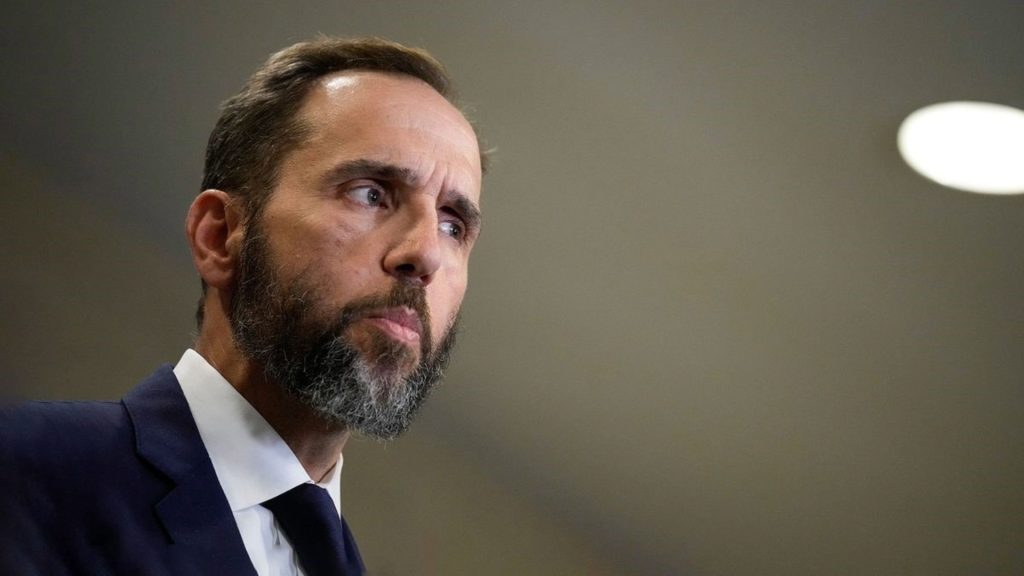
Legal experts criticized this decision, arguing that customary practice is to redact sensitive witness details during pre-trial discovery. Some analyses of Cannon’s rulings argue they show favoritism toward Trump, fueling perceptions of bias.
Arguments Over Sensitive Materials Discussed at Trial
In her order, Judge Cannon recognized the challenges facing Mr. Trump’s defense team in preparing for trial, given the large volume of classified and unclassified evidence. Judge Cannon noted, “The quantity of discovery in this case remains exceedingly voluminous, even more so than initially thought.”
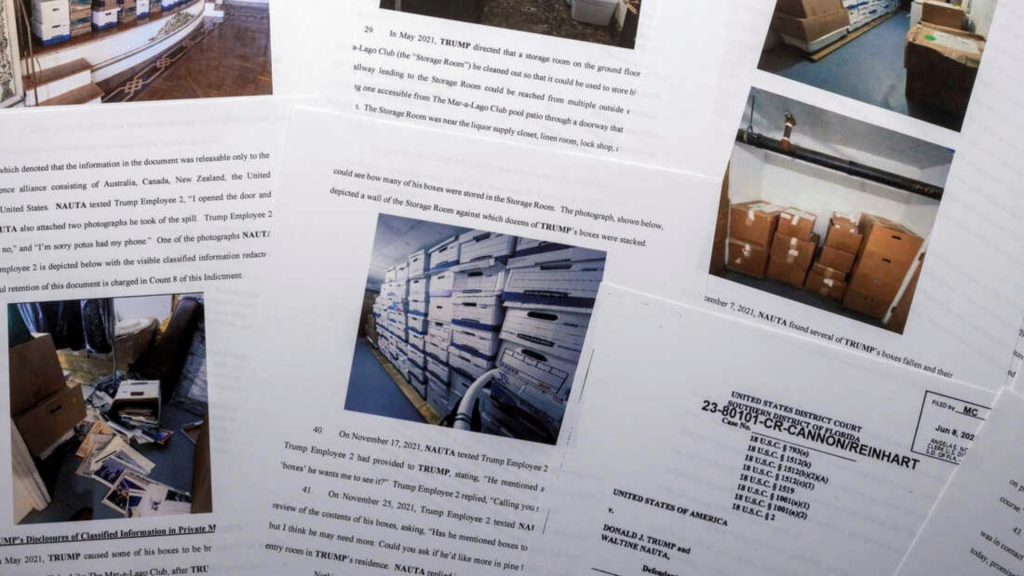
She said “These evolving and unforeseen circumstances require a reevaluation” of the time afforded to Mr. Trump’s attorneys to review the evidence. While denying the request to delay the pre-trial motion deadline, Judge Cannon left open the possibility of revisiting the May 2024 trial date.
Trump Seeking Access to Unredacted FBI Witness Reports
Cannon’s refusal to delay pre-trial deadlines comes as former President Trump’s legal team is pushing to access unredacted FBI witness reports as part of the classified documents case. According to court filings, Trump’s lawyers asked Cannon to compel the Department of Justice to provide unredacted copies of FBI Form 302 interview reports.
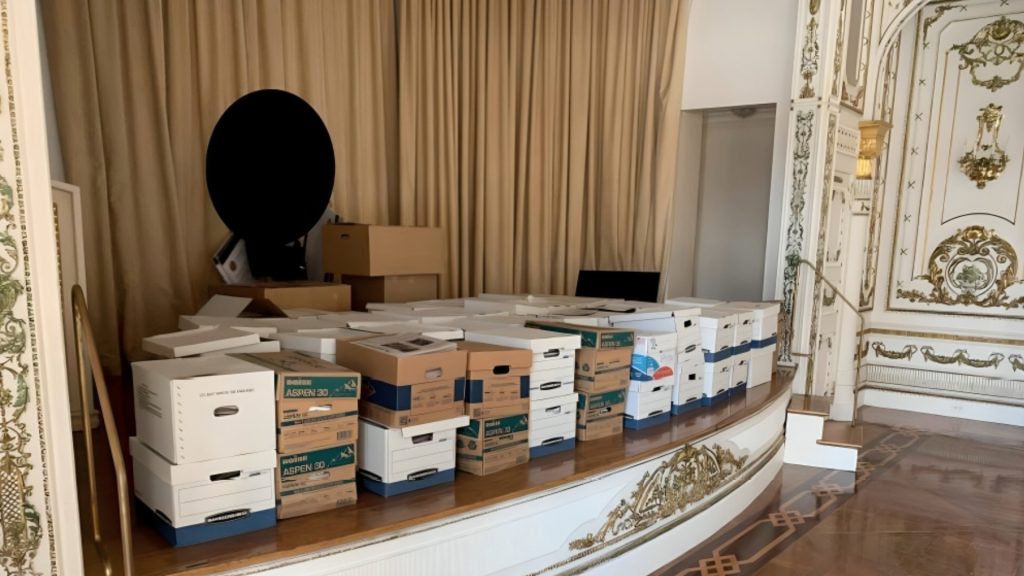
Special Counsel Jack Smith objected to providing unredacted 302 reports, arguing that doing so could expose witnesses to threats and intimidation. In a December 20 court filing, Smith said, “The identities of witnesses and law enforcement agents, as well as other sensitive details, were redacted from the 302s to protect their safety and privacy.”
Timeline and Key Dates in Trump Classified Docs Case
The timeline of the legal proceedings regarding former President Donald Trump’s handling of classified documents has spanned several years. In 2023, the case began moving forward in earnest. On June 10, 2023, a federal grand jury indicted Donald Trump on charges related to the mishandling of classified documents.
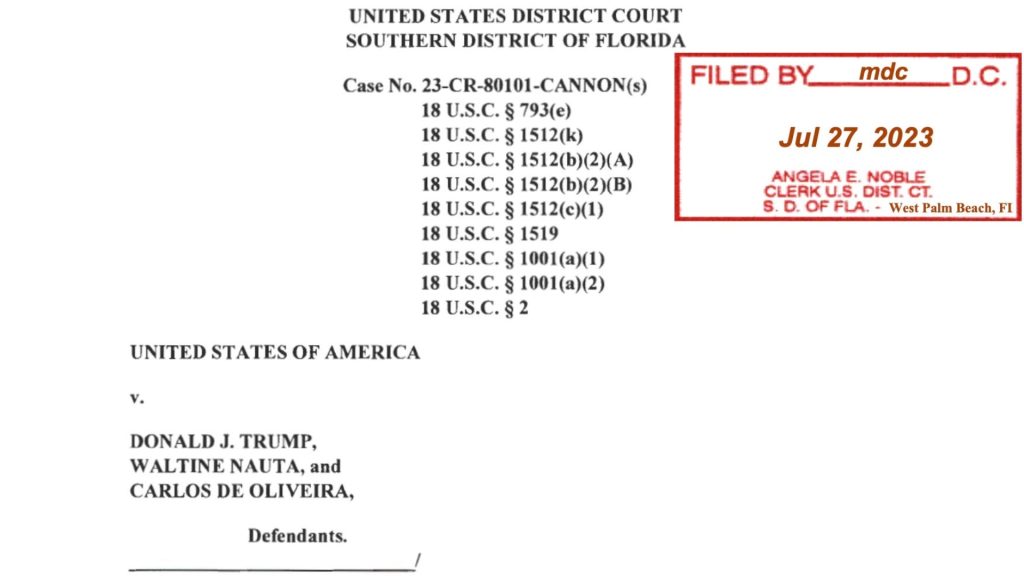
At the time of the indictment, U.S. District Judge Aileen Cannon set a trial date for May 2024. In November 2023, Judge Cannon rejected requests from Trump’s legal team to delay the May 2024 trial date. However, she did extend some pre-trial deadlines to give Trump’s team more time to review the voluminous evidence in the case.
Turning a Blind Eye to an Ally
As the case against Trump progresses, all eyes remain fixed on Judge Cannon and her critical rulings. While she has favored Trump in certain instances, her rejection of his team’s request to delay pre-trial deadlines suggests she intends to keep the case moving forward.

Though the former president likely hopes to stall until after the 2024 election, Cannon’s impartiality thus far indicates she will uphold the law above political pressure. Her balanced approach provides some reassurance amid concerns Trump may improperly influence the case.




